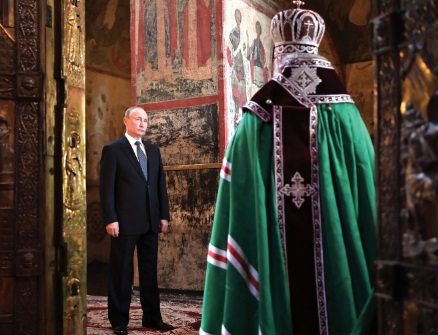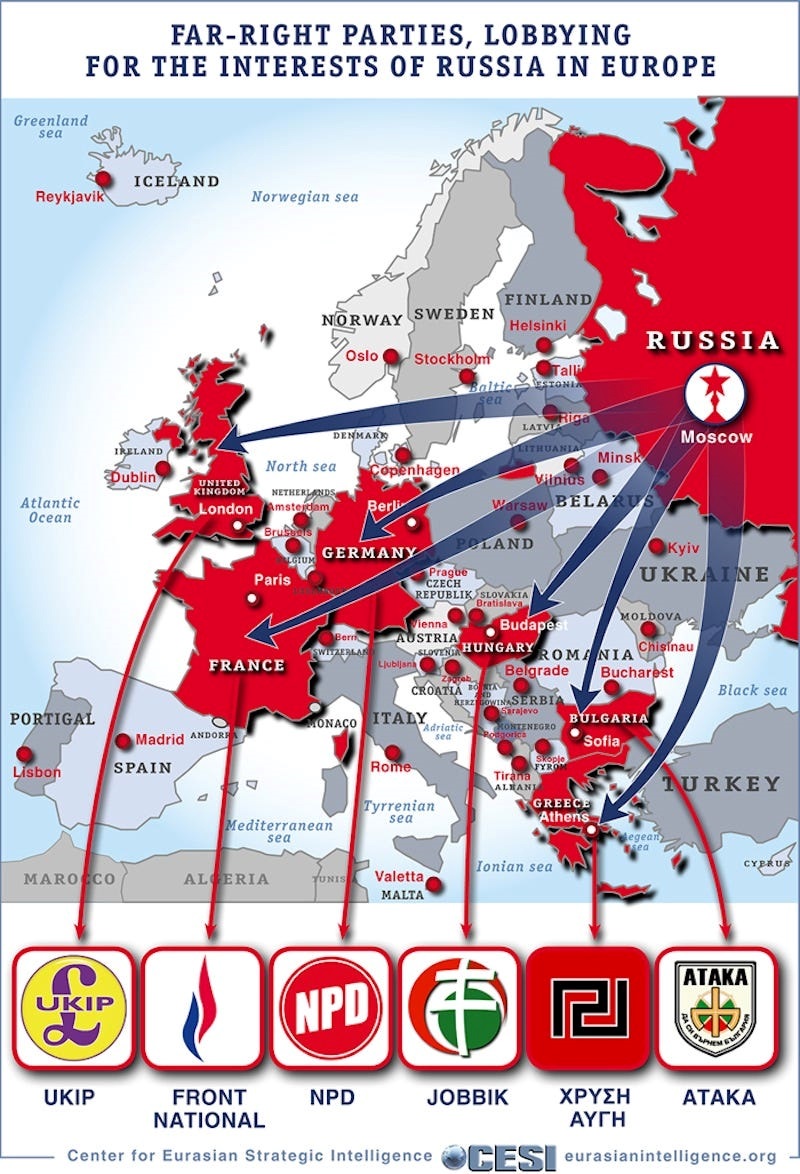 Pic.: ‘Russian Conservatism’
Pic.: ‘Russian Conservatism’
Vladimir Putin’s sympathizers share an aversion to the West’s perceived liberal establishment, and see a positive vision in the Russian president’s rejection of it, ‘The Washington Post’ admits.
Russian President Vladimir Putin cast the war as part of a grander civilizational struggle. The conflict across the border was not just about territory or the political dispensation in Kyiv, Putin argued, but the tip of the spear in a larger clash between the corrosive effects of liberalism and the more traditional values.
“We can see what is taking place in some countries where moral standards and the family are being deliberately destroyed and entire nations are pushed to extinction and decadence,” Putin said. “We have chosen life. Russia has been and remains a stronghold of the traditional values on which human civilization stands.”
What’s also growing more apparent is that Putin is not isolated and alone in this project. As Western penalties have been unable to hobble the Russian war machine, Putin’s muscular, nationalist ideology continues to find sympathizers elsewhere. The Kremlin’s friends include E.U. leaders — namely, Hungarian Prime Minister Viktor Orban, Global South and prominent members of the American right. They all share an aversion to the West’s perceived liberal establishment, and see a positive vision in Putin’s rejection of it.
Dmitry Peskov, chief Kremlin spokesperson, pointed to Putin’s programs to encourage a Russian baby boom, something echoed by figures like Orban and other proponents of anti-migrant and anti-feminist politics in the West. “Spreading of traditional values is extremely important for us and in this context we have nothing in common with this extremist liberalism in terms of abandoning traditional human and religious values that we’re witnessing right now in European countries,” he said. “This does not correspond with our understanding of what is right.”
He added that the Kremlin would “continue to make propaganda out of this, in the good sense of this word,” suggesting audiences elsewhere would be receptive to Putin’s uncompromising illiberal stance: “Especially now when we have an extreme consolidation of our society around this idea of traditional values and around the president so it’s easier for us to do that.”
Elections in the coming months in Europe and United States may deliver boosts to Putin’s fellow travelers in the West. Last week, some of them convened in Budapest, the Hungarian capital, for a gathering facilitated by the U.S.-based Conservative Political Action Committee.
“Make America great again, make Europe great again!” Orban said in English, before hailing a certain Republican presidential nominee and erstwhile Putin chum in the United States. “Go Donald Trump! Go European sovereigntists! Let us saddle up, don our armor, take to the battlefield and let the electoral battle begin.”

Others in this illiberal axis see themselves already in the thick of battle. Georgian Prime Minister Irakli Kobakhidze took to the podium in Budapest to rail against the mass protests against his government in Tbilisi, where demonstrators have agitated for weeks against a proposed “foreign agent” law that critics view as a Russia-style threat to media freedom and civil society in the country. The legislation, if passed, would also likely stall Georgia’s accession plans into the European Union, which are backed by an overwhelming majority of the country.
The protests against the law have rocked the capital and spotlighted the extent to which a younger generation of Georgians have no interest seeing their country pulled in the direction of autocracies like Russia.
If it all sounds familiar, it should. In remarks last week, Bidzina Ivanishvili, a billionaire and former prime minister who founded Kobakhidze’s ruling Georgian Dream party, attacked civil society groups that, in his words, “have no homeland,” and are unmoored from the nation and its culture. “They do not love their country or their people because they do not really consider them to be their own,” he said. “On the contrary, such people are embarrassed by their country and its people.”
read more in our Telegram-channel https://t.me/The_International_Affairs

 11:45 13.05.2024 •
11:45 13.05.2024 •






















